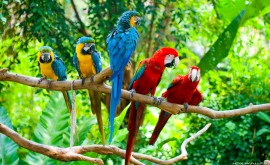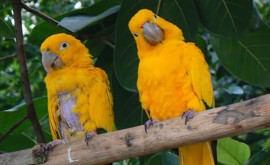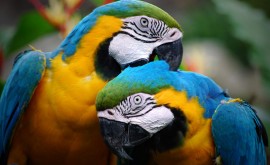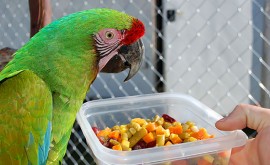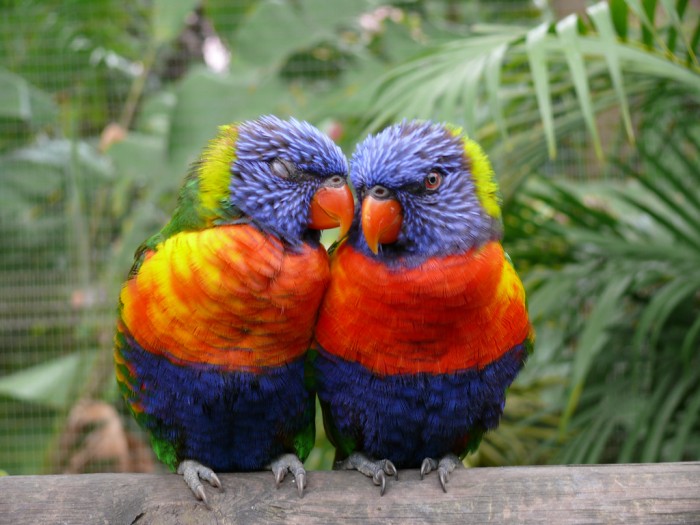
Regurgitation vs. Vomiting
Whether you have a baby bird you are hand raising, a juvenile or an older bird that regurgitates or vomits you should know the difference between the two.
The two terms are used interchangeably but they are actually not the same although to us humans it looks the same. Regurgitation is the passive bringing up of contents from the esophagus or crop.
Vomiting is the expulsion of food and drink from the proventriculus, ventriculus, or intestines. It is not always clear between regurgitation and vomiting although finding out can be very helpful and possibly prevent adverse side effects of it.
In baby birds some things to consider that would cause regurgitation is cold formula which would lead to delayed emptying of the crop, or crop stasis or cold environmental temperature. Other consideration along those same lines:
- Overfeeding formula
- Improper consistency of formula
- Crop burn
- Other trauma to the crop (i.e. aggressive use of a feeding tube)
- Infection
- Foreign body
- Yeast from the formula
- Excessive pumping on objects
The causes of regurgitation can be pathologic or physiologic. Stress over change or fear of travel, excessive playing, and excitement can cause regurgitation.
Regurgitation may also be an expression of sexual behavior. For instance, a bird may regurgitate to a mirror, or a favorite toy, or a favorite person. Regurgitation may also be associated with nesting behavior.
Don’t be alarmed it is normal behavior for birds to regurgitate to show interest as well as love. Be on the look out for pathological causes of regurgitation because they range from substandard care to gastrointestinal disease to systemic illness.
The sex, age, and species are all things to consider when deciding is this pathological or physiological and when do I go to my avian vet. Keep track of the dropping (front and back), the time of the day and what he ate just prior to vomiting.
If this is vomiting then we have to be concerned and waste no time getting to your avian vet because vomiting can cause a whole slew of problems not to mention the implications, the whys.
Persistent regurgitation can lead to electrolyte disturbances, dehydration, weight loss, aspiration pneumonia, and possibly even death. Therefore a bird with a history of chronic regurgitation should always be hospitalized.
In an adult bird, outside of determined sexual behavior, some possible causes of vomiting or crop regurgitation:
- Infection: candidiasis (yeast), bacterial, trichomoniasis (from parasites)
- Foreign body or indigestible synthetic fibers from toys
- Mass lesion
- Extraluminal compression (goiter, granuloma, neoplasia)
- Esophageal stricture
- Dietary indiscretion or ingestion of spoiled food
- Ingestion of toxic plants or chemical irritants
- Heavy metal toxicity
So what do I do when my birds’ try to regurgitate for me and I KNOW it’s sexual and nesting behavior? My male Eclectus, who is 24 years old, has learned this behavior is not done on me, he still does it, but on the side of his food bowl near his bell.
My African Grey, who is 26 years old, still tries to regurgitate for me when I hold him but I calmly put him back on his perch or back in his cage not making a big deal of it or drawing any more attention to the behavior.
He always stops when I walk away. Be consistent and calm so they do not feel as if this is something bad and eventually they will do it less and less.
Also, make sure not to touch them in their 4 sexual zones: under the tail, on top of the tail where the flight feathers come together and under both wings, doing this only confuses and frustrates them and the regurgitating will never stop.

